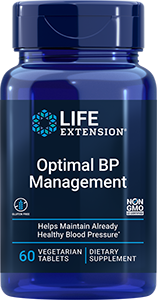 | December 22, 2009 | EPA and DHA needed for optimal nervous system function | | A report appearing in the December 2009 issue of the American Psychological Association journal Behavioral Neuroscience revealed that diets that fail to provide enough of the omega-3 fatty acids eicosapentaenoic acid (EPA) and docosahexaenoic acid (DHA) may negatively affect the nervous system. The finding could impact the understanding of information-processing deficits that occur in schizophrenia, bipolar disease, obsessive-compulsive disorder, attention deficit-hyperactivity disorder (ADHD), Huntington's disease and other nervous system disorders. Norman Salem Jr, PhD of the Laboratory of Membrane Biochemistry and Biophysics at the National Institute on Alcohol Abuse and Alcoholism and his associates gave one of the four following diets to pregnant mice and their offspring: omega-3 fatty acid deficient, low alpha-linolenic acid, high alpha-linolenic acid, or a diet enriched with EPA and DHA. DHA is the primary omega-3 fatty acid in the nervous system, including the brain. While DHA is metabolized from alpha-linolenic acid in the diet, the conversion is minimal, rendering a dietary source of DHA and EPA, such as fish oil or an algae source, of vital importance. "Humans can convert less than one percent of the precursor into DHA, making DHA an essential nutrient in the human diet," coauthor Irina Fedorova, PhD noted. Adult offspring of the mice in the four groups were tested for nervous system function by exposing them to a loud noise preceded by a softer warning tone. Animals normally flinch upon hearing a loud tone, however, the degree of flinching is reduced when the animals are first exposed to a warning tone: an adaptive process known as sensorimotor gating. Weak sensorimotor gating in humans is associated with a number of nervous-system disorders. While mice that were raised on EPA and DHA demonstrated normal sensorimotor gating, animals given the other diets were more startled by the loud noise. The finding suggests that a sensory overload state could result from DHA deficiency. The ability of DHA and EPA to help maintain nerve cell membranes may be responsible for the protective effects observed in the current study. "It is an uphill battle now to reverse the message that 'fats are bad,' and to increase omega-3 fats in our diet," Dr Salem commented. "It only takes a small decrement in brain DHA to produce losses in brain function." | |  |  | | A growing body of scientific literature is helping parents and doctors better understand the link between fatty acids and behavioral disorders such as ADHD. The ratio between omega-3 and omega-6 fatty acids (such as arachidonic acid) seems especially important. Eicosapentaenoic acid (EPA) and docosahexaenoic acid (DHA) are omega-3 fatty acids found in flaxseed oil and cold water fish. In the typical Western diet, we tend to consume more omega-6 fatty acids relative to omega-3 fatty acids. The ratio of omega-3 to omega-6 fatty acids has been shown to influence the development of neurotransmitters and other chemicals that are essential for normal brain function. Increased intake of omega-3 fatty acids has been shown to reduce the tendency toward hyperactivity among children with ADHD (Haag M 2003). Several studies have examined the role of essential fatty acids in ADHD, with very encouraging results: - A study examined the effects of flaxseed oil and fish oil, which provide varying degrees of omega-3 fatty acids, on adults with ADHD. The patients were given supplements for 12 weeks. Their blood levels of omega-3 fatty acids were tracked throughout the 12 weeks. Researchers found that high-dose fish oil increased omega-3 acids in the blood relative to omega-6 acids. An imbalance between arachidonic acid and omega-3 fatty acids is considered a risk factor for ADHD (Young GS et al 2005).
- One study compared 20 children with ADHD who were given a dietary supplement (that included omega-3 fatty acids) to children with ADHD who were given methylphenidate. The dietary supplement was a mix of vitamins, minerals, essential fatty acids, probiotics, amino acids, and phytonutrients. Amazingly, the groups showed almost identical improvement on commonly accepted measures of ADHD (Harding KL et al 2003).
| 
Dermatologist Gary Goldfaden creates treatments that promote youthful, healthy skin and may provide natural alternatives to cosmetic surgery. Unlike surgeons who spend little time talking with their patients, Dr. Goldfaden has made communicating with his patients a priority. He believed that if he could practice dermatology and communicate equally well, he would accomplish his goals as a physician. Dr Goldfaden has authored a number of informative articles on such diverse skin care topics as revitalizing aging skin, impeding unwanted hair growth, and topical alternatives to cosmetic surgical procedures.
https://www.lifeextension.com/Vitamins-Supplements/Beauty-Personal-Care/Skin-Care.htm | |
 | Natural BP Management   | | Natural BP Management is the first broad-spectrum nutritional supplement to combine potent, standardized concentrations of these novel nutritional agents in one convenient, easy-to-use formula: - CVH 15™, derived from whey protein, naturally inhibits angiotensin converting enzyme.
- Grape seed extract naturally increases blood vessel dilation, thereby promoting healthy blood flow and blood pressure already within the normal range. Available for the first time is a patented grape seed extract that contains a novel ratio of uniquely structured polyphenols.
- Pomegranate extract is an abundant source of highly concentrated compounds called punicalagins that function as natural antioxidants and also inhibit angiotensin converting enzyme, thus supporting blood vessel dilation and countering vessel constriction.
| | |   | | How often has it happened... you've brushed, flossed, rinsed and used mouthwash. And still you have bad breath! The reason lies inside the body where food is broken down, emitting in the process a variety of odors that regular oral hygiene, including mouthwash, can't touch. The sweet aroma of mouthwash is quickly overwhelmed by each exhaled breath containing such food decomposition byproducts as methyl mercaptan, ammonia, trimethylamine and hydrogen sulfide. Pro-M™ functions as "a natural internal odor eater" by specifically neutralizing the decomposed products produced from food and exhaled as bad breath. Pro-M is safe and has been shown to eliminate body odors of all kinds, including those induced by alcohol and tobacco. | | | |  | | Life Extension Update | | What's Hot | | Life Extension Magazine® | |

